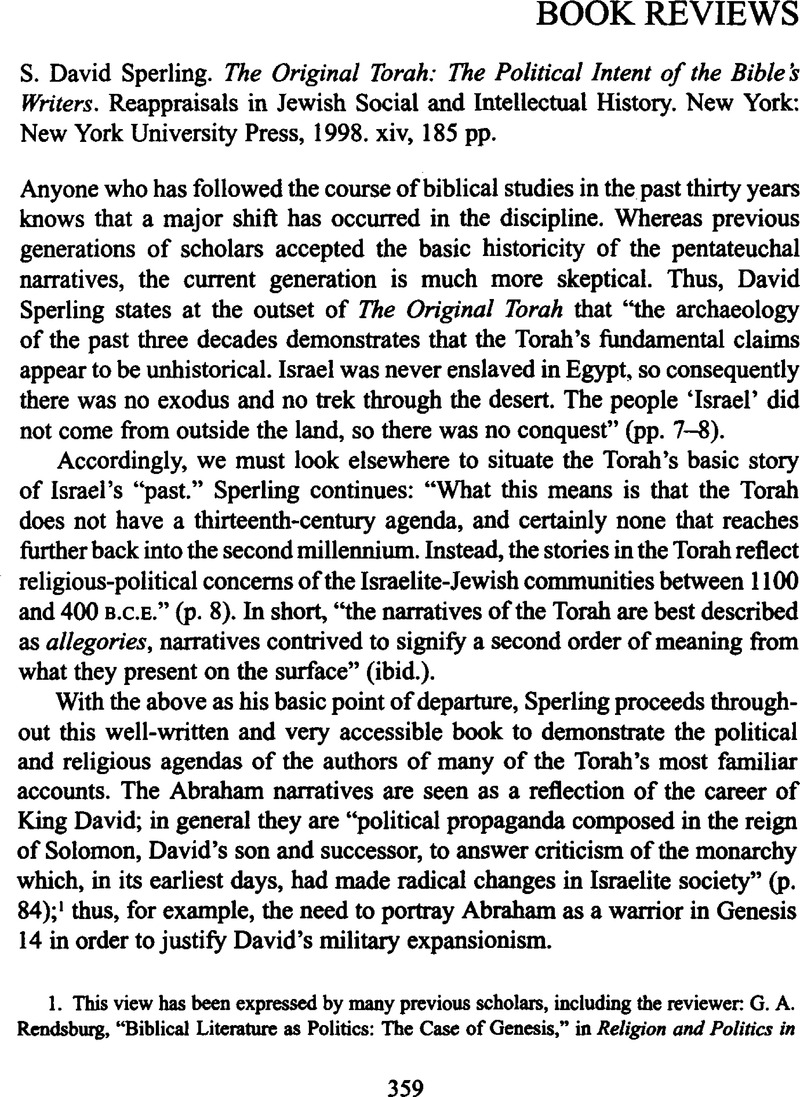No CrossRef data available.
Published online by Cambridge University Press: 15 October 2009

1. This view has been expressed by many previous scholars, including the reviewer Rendsburg, G. A., “Biblical Literature as Politics: The Case of Genesis,” in Religion and Politics in the Ancient Near East,ed. A. Berlin (Bethesda, Md.: University Press of Maryland, 1996), pp. 47–70.Google Scholar
2. For details, see Rendsburg, G. A., “The Early History of Israel,” in Crossing Boundaries and Linking Horizons: Studies in Honor of Michael C. Astour on His 80th Birthday,ed. G. D. Young, M. W. Chavalas, and R. E. Averbec (Bethesda, Md.: CDL Press, 1997), pp. 433–453.Google Scholar
3. On the former, see the many works of A. Hurvitz, most importantly A Linguistic Study of the Relationship Between the Priestly Source and the Book of Ezekiel(Paris: J. Gabalda, 1982); on the latter, see now Wright, R. M., “Linguistic Evidence for the Pre-Exilic Date of the Yahwist Source of the Pentateuch” (Ph.D. diss., Cornell University, 1998).Google Scholar
4. Ranke, H., Die Egyptischen Personennamen, vol. 1 (Glyckstadt: J. J. Augustin, 1935), p. 133.Google Scholar
5. Vogelsang-Eastwood, G., Pharaonic Egyptian Clothing (Leiden: E. J. Brill, 1993), p. 10 (emphasis added).Google Scholar